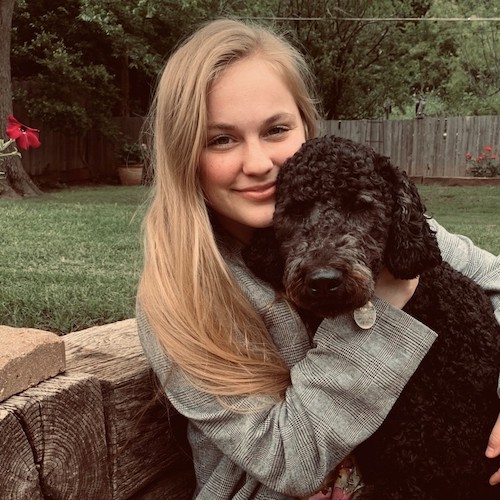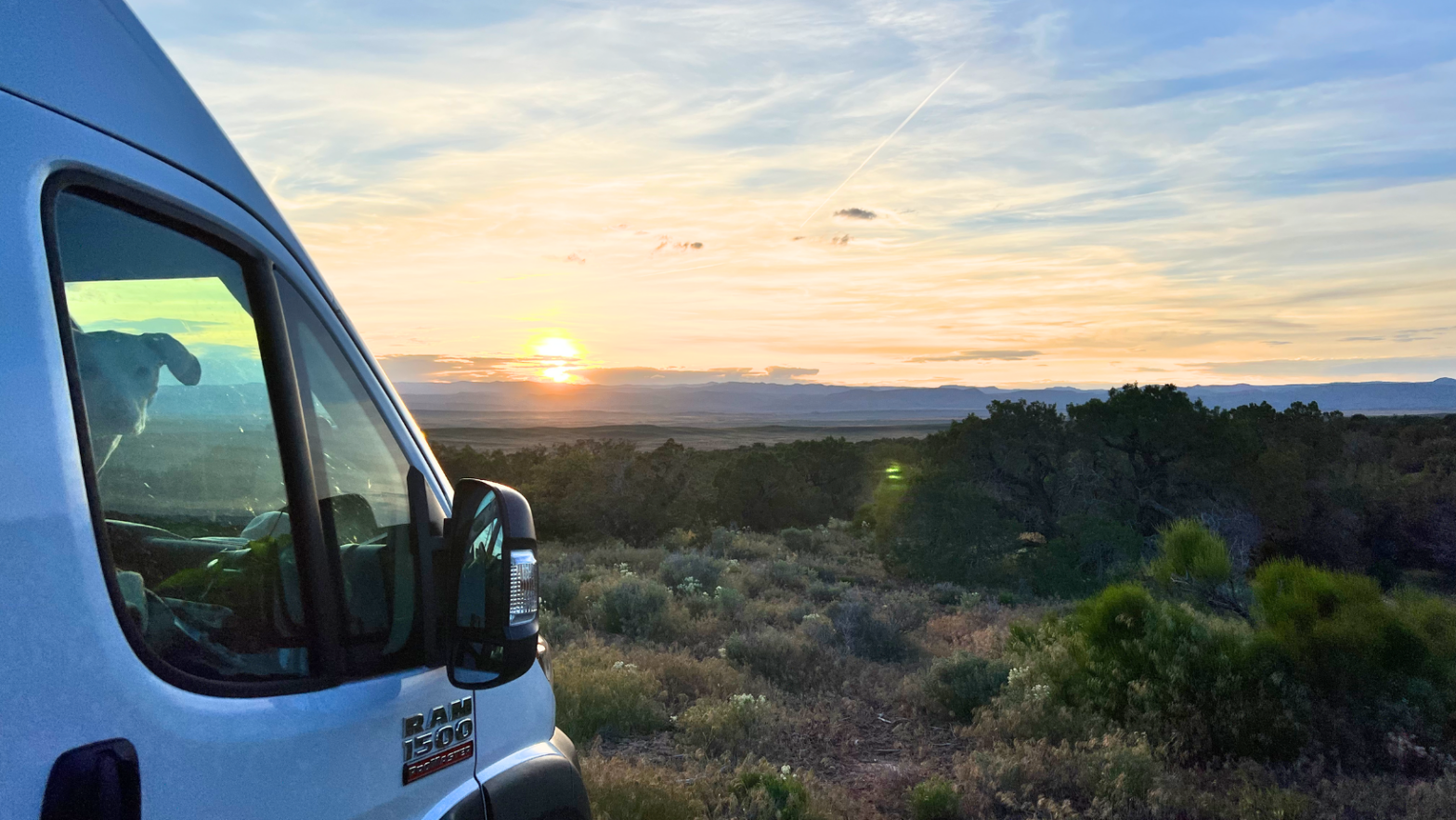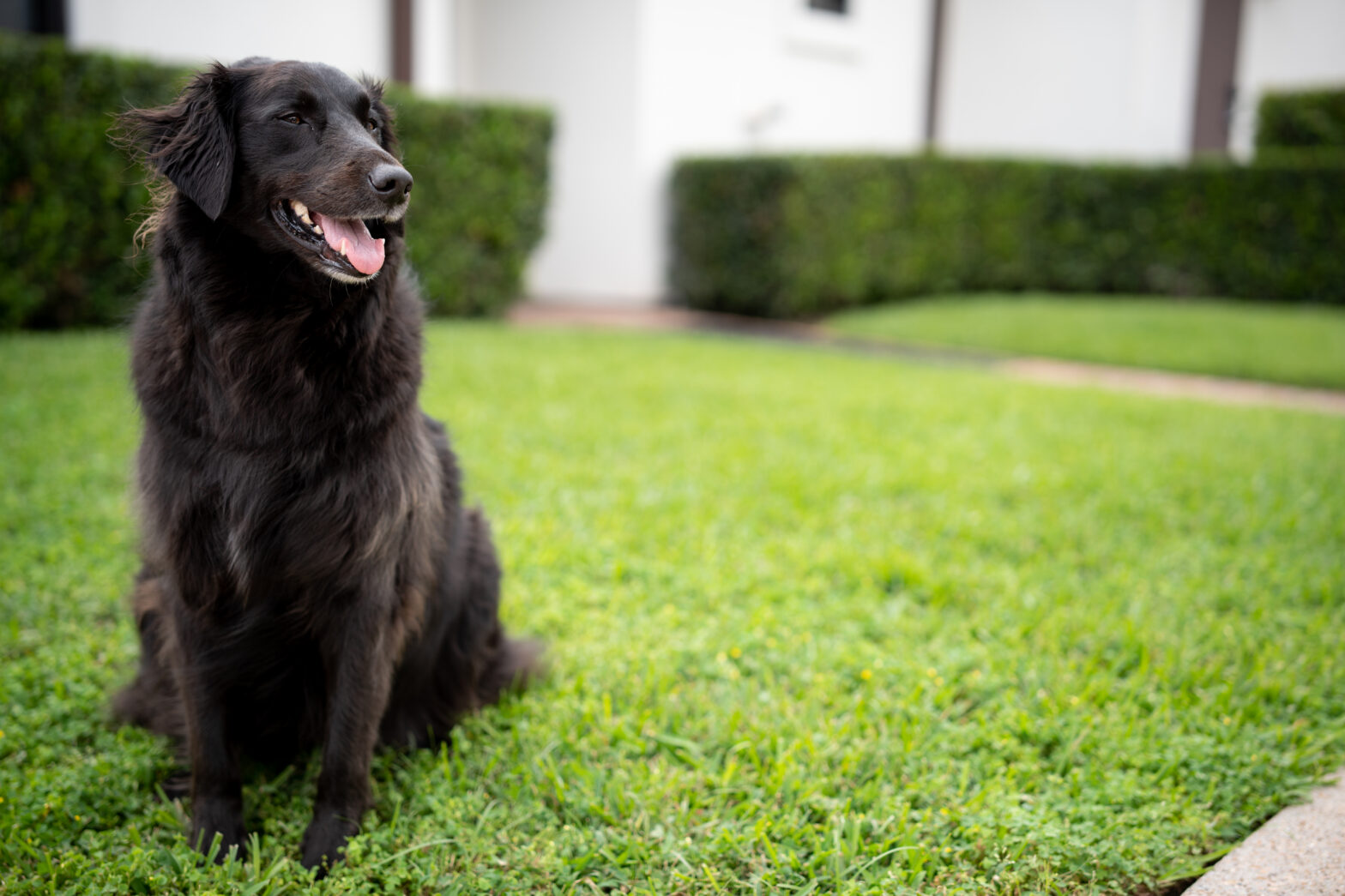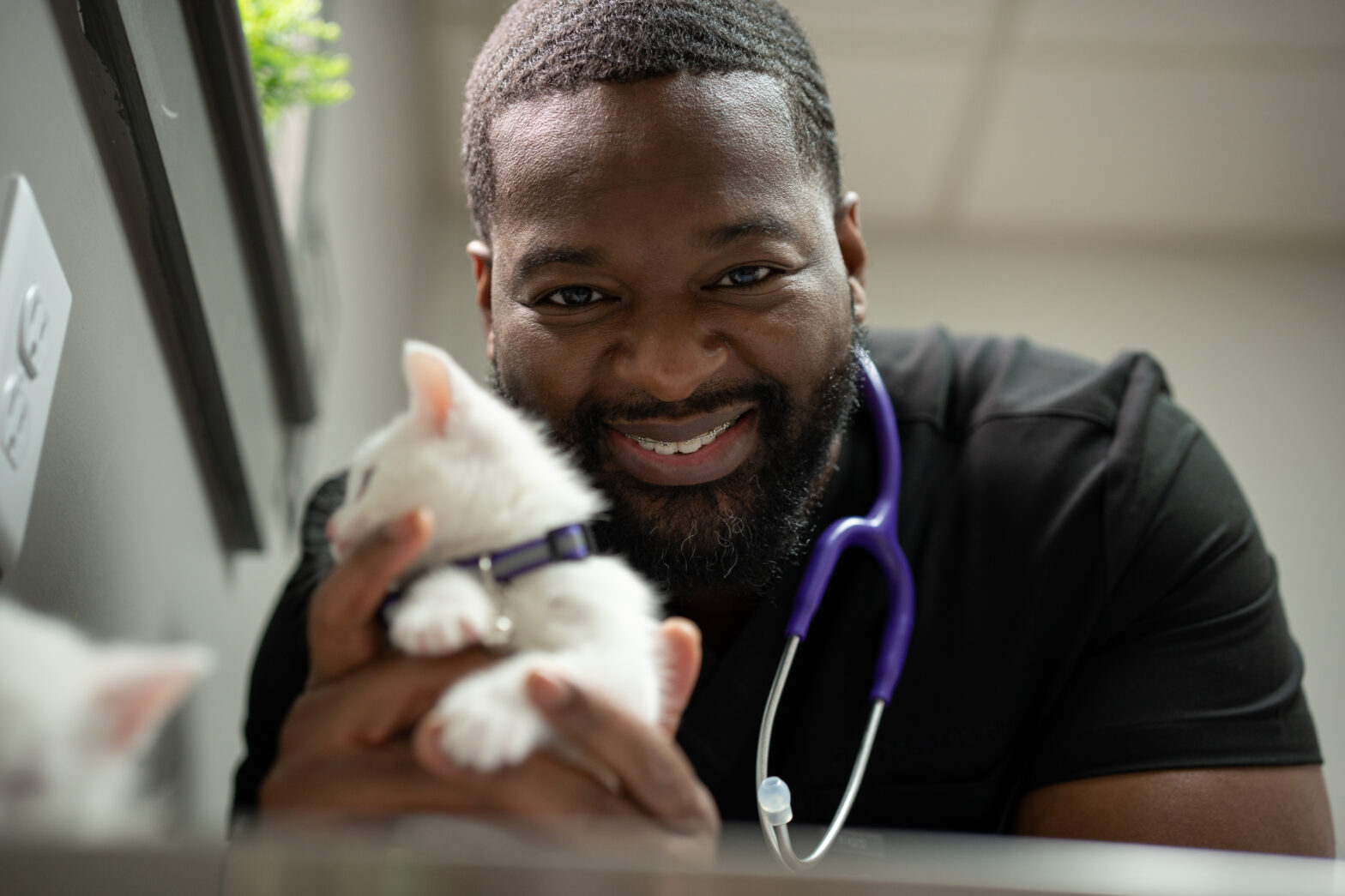Texas A&M College of Veterinary Medicine student, Katie Zimmerman & her dog, Dexter
“What do you want to be when you grow up?”
We all remember being asked when we were kids, usually with a different answer every time, depending on our latest hero or favorite TV show character. I am one of the lucky few who could always answer it with certainty – a veterinarian. Even before I knew how to spell it, or say it correctly, I knew I wanted to be an animal doctor. The responses were always really positive while I was growing up. It wasn’t until I started really pursuing it during undergrad and into vet school that the response went from “Wow! That is so cool!!” to “Wow. Good for you. I love animals a lot, but I could NEVER do that. I can’t even fathom putting an animal down.”
I can’t either. There are a lot of aspects of vet med that I still struggle wrapping my head around. People who come into this field do it because they have a passion for medicine and a love for animals. We empathize with owners, we sympathize with our patients, and we do what we can to make a difference. The paradox of becoming a vet because you love animals, only to have to see the worst cases, the saddest moments, and the most heartbreaking endings…. it takes a toll.
Becoming a vet comes at a very, very high cost (and I don’t just mean the $100,000’s of dollars in debt). What I’m talking about is the fact that vets have the highest suicide rate of all medical professionals. I’m talking about the emotional exhaustion of trying to not carry home the burden of sadness, anger, guilt and frustration when someone calls you money hungry for not saving their pet pro bono or when you euthanize a puppy with parvo that was never even given a fair shot at life. Google “veterinarians are” and read the results. Out of the top eight results, three of them end in “veterinarians are – crooks, too expensive, killing themselves.”
What does this mean to me? What can I do to ensure that I don’t become part of the terrible statistics surrounding this field? The cycle of burnout that I’m terrified I will fall into goes like this: Apply for vet school. Pay lots of money for vet school. Graduate. Try to find a job to pay back the money (and do what I love). Lose a patient. Lose another one. Compassion fatigue. Euthanize. Burn out. Keep going. Pay the bills. Still have $120,000 in debt? Keep going. Keep pushing. Wake up. Keep going. Repeat. Again. Over and over.

But not for me. Not anymore.
Vet med has a lot of heavy burdens, weighing down the love and passion that brought me to the field in the first place. With Roo, a company that was literally made to help give vets, techs and hospitals the work/life balance we all strive for, I at least know I have complete control over my future. It gives me hope that I can follow my dreams, pursue my passion and make a lot of money, without working myself into the pitfalls of compassion fatigue and burn out. I can practice at different clinics, on my own time, with different specialties and focuses.
I may not be able to control the sadness and heaviness of being a veterinarian, but I can control whether or not I will become a statistic. And that makes the dreams that I’ve had since I was 7 totally worth it.
 Katie Zimmerman
Katie Zimmerman



